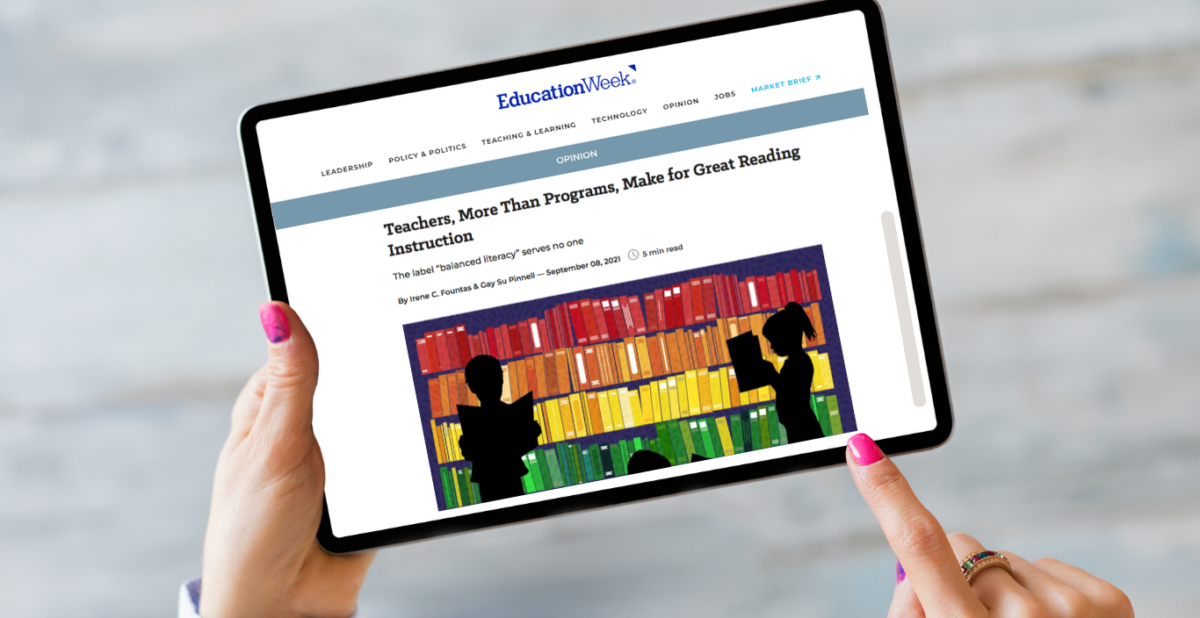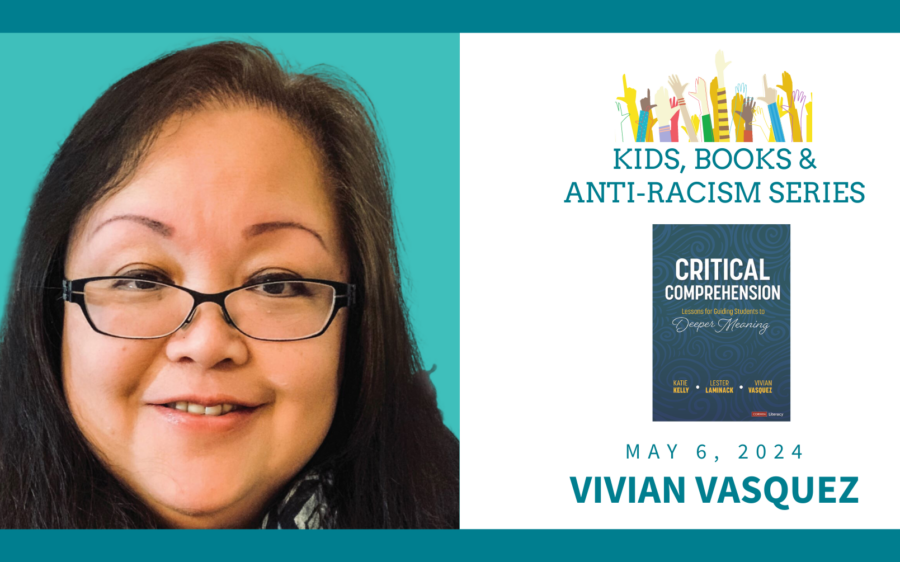Irene Fountas and Gay Su Pinnell wrote and published an article in EdWeek addressing the current climate of literacy education. In the article, Irene and Gay talk about the need for educators to practice using rationales for instruction, not labels, and to nurture a collaborative school culture that supports the shared values of their learning community. This article reminds us of the responsibility of educators to work collaboratively to provide children with the chance to live a literate life.
We advocate literacy approaches that avoid emphasizing one aspect of literacy at the expense of another.
–Irene Fountas & Gay Su Pinnell in “Teachers, More Than Programs, Make for Great Reading Instruction,” EdWeek, September 2021.




